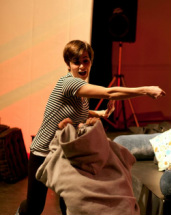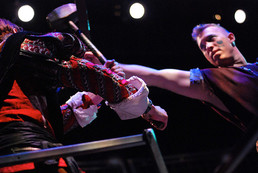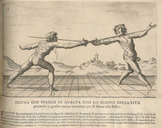One topic that came up repeatedly during the entire program and was of special interest during my workshop was what early career fight directors should be reading.
I submit the following list as what I might call, "a good start" as this list would hopefully serve as a launching point towards further study, and would also give one enough general knowledge to put that further study into perspective.




 RSS Feed
RSS Feed